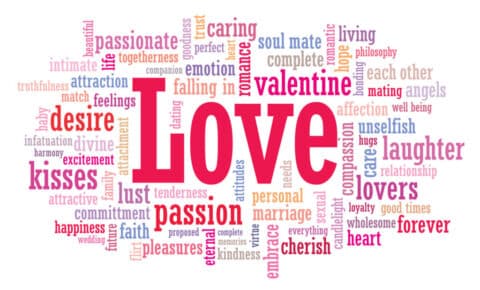In past years I asked myself a million times the same question again and again, What is love? And what science has done for all these years to help us better understand Love? Is there a way to measure if we have really found our one true Love? Yes, The study of our body and nervous system has finally giving us a hope and ways to know you’ve found it. And Yes, finally we are close to have an answer to long waiting unanswered mystery “What Love is?”.
During my elementary school years, Love was when my grandma cooks my favorite dish for dinner. When I was in High school, Love was when my mom gives extra allowance for specific reason. When I was in college love was when my crush looks at me before I hide myself at the back bench. When I started to work, love was a bigger payslip. and Now at this age, love is when I embrace my beloved woman and fall asleep in absolute peace. So basically the definition is ever changing based on age, situation, and 100’s of other factors since the reality is that love can mean something different to everyone. But there are a number of ways you can be sure that you’re experiencing true love within your relationship.
Neuroscience Finally explains many of the common behavior patterns people display when they have the feeling of being in love. First, what is love, according to neuroscientists?It’s one of the most studied, but least understood, of all the human behaviors. A major study over 20 years ago studied 166 societies and found evidence of romantic love in 147 of them. The conclusion of the researchers: “there’s good reason to suspect that romantic love is kept alive by something basic to our biological nature.
I began to realize that romantic love is not an emotion. In fact, I had always thought it was a series of emotions, from very high to very low. But actually, it’s a drive. It comes from the motor of the mind, the wanting part of the mind, the craving part of the mind. The motor of the brain. It’s a drive. and when This biological drive takes over, and we experience love. But the main characteristics of romantic love are craving: an intense craving to be with a particular person, not just sexually, but emotionally. It would be nice to go to bed with them, but you want them to call you on the telephone, to invite you out, etc., Is this what’s happening in your body and brain as you experience the emotion of love? It’s the best way to know whether you are truly experiencing love.
1) Love makes you feel addicted:
When you feel like you’re in love, you can’t get enough of it. There’s a reason for this. Neuroscientists have established we respond to love in the same way we respond to drugs: once we’ve experienced it, we want more. This is because love creates addiction. Thinking about the person you love triggers activity in the ventral tegmental area (VTA) of the brain, which releases a flood of the neurotransmitters dopamine, oxytocin, and serotonin, dopamine is the so-called pleasure chemical into the brain’s reward or pleasure centers. This experience gives the lover an extraordinarily addictive high. Love is considered an addiction for the simple fact that we can’t get enough of it. We seek love and adoration, acceptance and community at every turn in our lives. The mix of affection, attraction, and arousal triggers fireworks in the brain. A study found that once our brains have gotten a taste of something, it’s very hard for us to ignore it. Our brain will continue wanting to activate those feel-good chemicals, which is why love is sometimes described as an addiction. This is also why break-ups can be so messy to deal with. (not true for scorpios lols!)
2) Love makes you feel obsessed:
This common behavior is really interesting.Have you ever fallen in love and noticed that you’ve become obsessed with your partner? There’s an explanation for this, according to neuroscientists. flood of dopamine, oxytocin and serotonin when feeling in love gives the body such an incredible high. Yet the body always seeks to be in balance. Therefore, when your body returns to a more balanced state, it gives the feeling of losing control. You’ll continually feel a push and pull between the flood of emotions and returning to your balanced state. It makes you crave the high, creating a feeling of obsession. Your body and brain wants this, especially during the times when your body returns to a more natural state. The feeling of obsession is the natural result.
3) Love will make you experience recklessness:
If you’ve ever been in love, then you know the term “crazy in love” is a real thing. The prefrontal cortext; the brain’s mechanism for logic and reasoning; drops a gear when we’re in love. At the same time, the amygdala ; the warning us against threats; also works less. The result of these effects is that we end up looking at the world through rose-colored glasses. This makes us make less-than-ideal choices when our brains are preoccupied with love.When we are in love, we have no need to be defensive, and we tend to see things from a positive point of view which stops us from questioning our actions, thoughts, and feelings, and it can leave us wondering what the heck just happened.
4) Love and lust can happen at the same time and not necessarily for the same person:
According to neuroscientists, love and lust appear to be separate (but overlapping) neural responses in the brain. They both high and both addictive, but they’re different enough that they can coexist. They are distinct enough that you can lust after one person while being in love with another. Obviously, this can cause real problems in a relationship if you love one person but lust after another. However, Over time, you’ll increase the presence of oxytocin and vasopressin in your brain, kicking the neural response of lust into gear.
5) The eyes are bigger than the heart:
According to men and women behave differently when in love. When a man is in love he is constantly on the lookout for visual cues of love. His visual cortex is more active when love is triggered in the brain, and he will continue to look for visual confirmation in his life that the love is real.Women, on the other hand, don’t require visual cues to know that they are in love or that they have a strong bond with someone.They seem to rely more on inner feelings of love.
6) Love is a blur:
It’s true that love can make you feel like you are flying on a cloud, or that everything in life is as it should be. That’s because love can mess with your brain. However, women who are in love tend to have an overactive hippocampus, which is the part of the brain that triggers memory keeping, as compared with men. That’s why women are more likely to remember special dates and occasions, and why men are likely to forget to buy something for Valentine’s Day. A key lesson for men in relationships: women remember almost everything.
7) Eye contact is the gateway to the heart:
Have you ever gazed into your lover’s eyes and lost yourself for a moment?Your brain is working really hard to process the information it receives from your eyes, and when you get “lost” in the eyes of another, your brain doesn’t know what to do with that information.Newborns and lovers have this in common: they make eye contact to form an emotional connection.Eye contact between lovers to form an emotional connection isn’t just a romantic notion. It’s a biological reality, according to researchers.The connection that is made can solidify feelings of love and make it all the more real.
8) Promiscuity and monogamy are influenced by the chemicals in your brain:
It turns out that if your partner has cheated on you, it might not actually be their fault. Some brains are wired to seek out love in any form it can get.However, studies have shown that we can change our cheating ways by introducing higher levels of the “feel good” hormones like oxytocin, which allow us to be happy in our current love arrangement, rather than go looking for love in all the wrong places.So whether you are falling in love for the first time or have been around the block a time or two, consider how your brain is actually controlling your experience of love.We think that love comes from the heart, but the truth is that it is the result of a hard-working brain trying to make sense of the world we present to it on a regular basis. I still need to get more details on how this is occurring, maybe in few days I will talk to my neurosurgeon sister for deeper insights.
Finding the person that is right for you can be difficult, but when you find them, and you understand how your brain is impacting your relationship, you can understand if you are experiencing true love or not. Thanks for reading.

